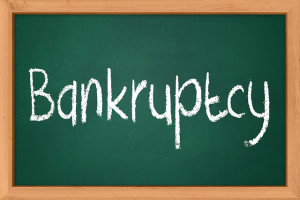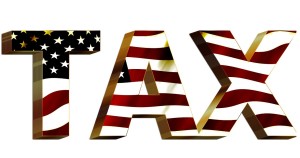
One of the most practical questions you’re likely to have if you’re considering bankruptcy is what will happen to certain debts: Will you still owe money to certain creditors? What if you want to keep debts, like a vehicle loan or a mortgage? How are special debts, such as income taxes and child support, handled?
One of the most basic principles of bankruptcy is that it treats all creditors in each legal category the same as all the other creditors in that category. There are three main categories of debts. Not everyone has debts in each of the three categories, but many people do. You should be able to start dividing your debts among the three categories. Then bankruptcy and how it deals with each of your creditors will begin to make more sense.
The three categories of debts are: Secured debt; general unsecured debt; and priority debt.
Secured debt
All debts are either secured by collateral or not. Whether a debt is secured is often straightforward, such as with a vehicle loan in which the vehicle’s title specifies your lender as the lienholder. The lien on that title, together with the documents you signed with the lender, gives that lender certain rights as to that collateral, such as the right to repossess it if you fail to make payments as agreed.
In the case of every secured debt, there is a legally prescribed way to attach the debt’s collateral to the debt. In the case of the vehicle loan, the lender and you have to jump through certain hoops for the lender to become a lienholder on the title. If those aren’t done right, the vehicle might not attach as collateral to your loan.
Debts can be fully secured or only partially secured. If you owe $10,000 on a vehicle worth only $8,000, the debt is only partially secured—secured as to $8,000, and unsecured as to the remaining $2,000.
Debts can be voluntarily or involuntarily secured. Examples of the latter are judgment liens on your home, IRS income tax liens on all your personal property, and a mechanic’s or repairman’s lien on a vehicle that’s been repaired and the repair bill not paid.
General unsecured debts
All debts that are not legally secured by collateral are unsecured. And “general” unsecured debts are those that don’t belong to any of the categories of “priority” debts, discussed below. General unsecured debt is a default category—it applies if a debt is unsecured and non-priority. This includes every imaginable type of debt or claim. Common ones include most credit cards, medical bills, personal loans with no collateral, bounced checks, most payday loans (although those sometimes have collateral), unpaid back rent and utilities, balances left over after a vehicle is repossessed, many personal loans, and uninsured or underinsured motor accident claims against you.
Sometimes debts that used to be secured can become unsecured, and vice versa. An example of the first: once you’ve surrendered all the collateral—such as a car on a car loan—any leftover debt is unsecured. And an example of the second: an unsecured medical bill can become secured after a lawsuit is filed against you and a judgment is entered that results in a judgment lien attached to your real estate.
Priority debts
Priority debts are special because the law treats them as better than general unsecured debts. There are specific levels of priority among all the priority debts.
It’s all about who gets paid first (which often means who gets paid at all), which comes up in two main ways:
First, most Chapter 7 cases don’t involve the trustee receiving any of your assets for distribution to your creditors (known as “no-asset cases”). But in those cases where there are non-exempt assets (known as “asset cases”), the priority creditors are paid in full before the general unsecured ones receive anything. And the higher priority creditors are paid in full before the lower priority ones.
Second, in a Chapter 13 case, your plan must show that you will pay all priority debts before the completion of your case and then you must actually do so before you are allowed to complete the plan.
The most common priority debts for consumers or small business owners are the following, in order starting from the highest priority:
• Child and spousal support—amounts owed as of the time of the filing of the bankruptcy case;
• The administrative costs of the bankruptcy case—trustee fees and costs, and in some cases attorney fees;
• Wages and other forms of compensation owed to employees—maximum of $10,000 per employee, for work done in the final 180 days before the bankruptcy filing or close of business, whichever was first; and
• Certain income taxes, and some other kinds of taxes—some are priority but others are general unsecured if they are old enough and meet some other conditions.
Reading over and thinking about these categories of debts can give you a good sense of where your debts fall in the grand scheme of things if you were to file for bankruptcy.







